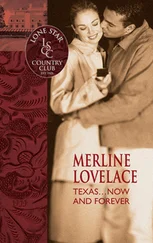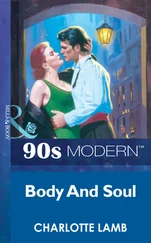Will offered up a scientific theorem about causation and correlation. “Not to mention reverse causation and coincidence. Umbrellas don’t make it rain,” he said.
Lyle nodded his head and said, “Tell me something I don’t know,” as if Will had taken the words right out of his mouth. Lyle was always saying “tell me something I don’t know” the way Pastor Price said “don’t get me wrong” and Misty Mills said “no offense,” but for Lyle, the phrase was a way to avoid having to comment on subjects he knew nothing about.
“Oh, Lyle!” cried Maggie in frustration.
“We’re only saying that you don’t have all the facts,” said Will.
“Who in tarnation does?” asked Maggie. “What does anyone base a decision on? Partial knowledge, that’s what.” She had practiced the line, but now it sounded flat and inadequate. Even Lyle could poke holes in it.
“That’s what we have experts for,” he said.
Of course other people knew more than Maggie did, but that didn’t absolve her. “That doesn’t absolve me,” she said. “I have a duty to act.” She wanted to add something about wisdom, about how it didn’t always depend on facts. She wanted to say that the more facts people knew, the more they were blinded by them, but Lyle interrupted her.
“Lay off, Will,” said Lyle. “Can’t you see your mother’s upset?”
This only increased Maggie’s aggravation. Her family was allied against her, both coddling her and making a joke of her determination. It was as if Lyle had grabbed on to her sleeve and was pulling her back from an important edge.
Maggie had shown Lyle and Will the newspaper article, but she didn’t show them the document she had taken from Mr. Winslow’s desk that remained hidden in a separate folder at the very bottom of the evidence pile. She didn’t even like to think of it, yellowing there beneath her sweaters and flannel nightshirts, yellowing except for the crimson border and the threatening red letters marching across the top of the page — and tucked just inside the cover, the letter from the Department of Defense.
Tucked inside the folder too was the letter from Dolly Jackson describing her experiences as a midwife at a women’s clinic and asking Maggie if she had ever come across evidence that the munitions produced at the plant were making people sick, and if she had, could she copy it and send it on. Maggie hadn’t bothered to write back saying she hadn’t and she wouldn’t — of course she wouldn’t take something that wasn’t hers! But she had. She had, and now she had to do something with the evidence — evidence that was more like ammunition than she liked to think.
When True came up to her at her going-away party, which was no more than Dr Pepper and a store-bought sheet cake in the lunchroom, and said, “So, you think you’re better than us, do you?” Maggie only had to put her hand on True’s sharp little shoulder blade and say, “Don’t get me wrong,” for True to burst into tears and splutter, “I’m going to miss you, Maggie! Of course I’ll still have Misty, but you know how bossy Misty is.”
“I suppose you’re going to work at that chicken farm out by the highway,” said Misty, covering up her own dismay with her usual air of superiority.
“Oh, no!” exclaimed Maggie. “I can’t take a job that will bring suffering to someone else.”
“Someone! Chickens aren’t people!” True and Misty laughed ’til they cried over that, and the story spread like wildfire throughout Red Bud and north to Glorietta that Maggie Rayburn was giving up everything to live a moral life.
It started with the surge, which was officially called The New Way Forward. In order to build up forces, tours were automatically extended by presidential order.
— PFC Pablo Hernandez
It’s true I didn’t relay the information to the men in a timely fashion. For a long time it seemed too soon to tell them, and then, suddenly, it seemed too late.
— Lieutenant Colonel Gordon Falwell
I was standing in the back. I’m not saying we always understood what the colonel was talking about, but usually we could at least hear the words.
— Specialist Win Tishman
Some of the men went fucking crazy. The captain had to do something about it, and he did.
— First Sergeant Vince L. Crosby, aka Velcro
2.1 Gordon Falwell
Two weeks before Lieutenant Colonel Gordon Falwell’s Forward Support Battalion was scheduled to go home, Falwell was informed that all tours were being extended. The order had come down “effective immediately,” but whether he did it out of fear or compassion, the colonel put off telling his troops. He had considered writing a letter on official stationery that they could have in their hands as he made the announcement, but he couldn’t get the wording right. He liked to write things. He liked the feel of ink from his West Point pen flowing onto a fresh sheet of paper and he liked the crisp credibility of the final word-processed document. Above all, he liked finding the perfect word for a particular sentiment. But what was the perfect word for “fucked”?
As the day of liberation neared, discipline had deteriorated to the point of insubordination, which reflected badly on all of them, but mostly on Falwell himself. All day long, irritation had been squeezing his eyebrows together and forcing itself into the cavity behind his lungs, and now he was being called to brigade headquarters to get their new orders. Which meant he had to tell his troops ASAP.
One leadership lesson he’d learned was to get his ducks in a row before making a pronouncement, but his ducks depended on other people’s ducks, all the way up the chain to the president, who had the upcoming election to consider. Meanwhile, did he continue to send supplies to the northern bases? What did he tell the news crew that had come to interview him about the New Way Forward, which was also being called the Surge? And where did he put the incoming troops if nobody was leaving? He was jumpy. The jumpiness, combined with the guilt he was feeling, made him snap at Miller, his Command Sergeant Major, when Miller came in with yet another stack of reports. Lunchtime came and went. By midafternoon he could put it off no longer. He slammed his fist on the desk and told Miller to muster the troops. An hour later, 300 men and women stampeded into the DFAC, tipping over chairs and telling high-spirited jokes because they still believed they were going home.
“One more trip to Tikrit and we’re free,” said one of the soldiers.
“Too bad we missed Mardi Gras,” said a second soldier, and a third said, “There’s always Burning Man.”
“Haven’t you seen enough of those right here in Iraq?” asked the first.
“Yee-haw,” said the third.
“They can celebrate after we win the war,” grumbled the colonel as he followed Miller to the front of the room. Washington promised that a surge in troops would be accompanied by a surge in support for the war, not only among Americans, but among Iraqis. But Falwell thought they should have fucking surged back at the beginning instead of committing to that zip-in-zip-out light-footprint strategy, which had been the only way to sell a war without raising taxes and upsetting the folks at home and which someone or other had described as “just enough troops to lose.” Not that political considerations were any of his concern, but now and then he couldn’t help thinking, What the fuck?
Whenever the door opened, a gust of wind puffed the cheeks of the tent in and out according to some unseen geophysical rhythm, and still the colonel stood silently next to Miller, waiting while the men scraped into the chairs, some of them whistling and others laughing and punching each other on the arm. The ones who were sitting were banging their fists on the tables, and the latecomers, who had elbowed their way into the gaps between the tables in order to hear, were now pushing at one another and asking what was up before deciding it didn’t matter: just two more days and they’d be gone.
Читать дальше












